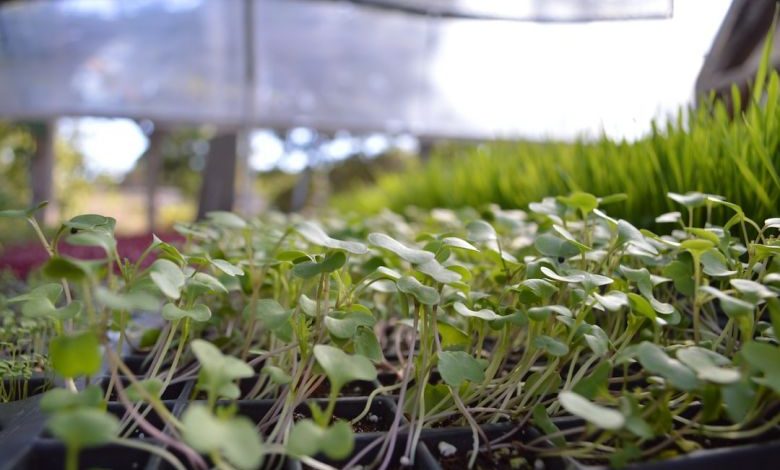How Can I Grow Herbs in My Kitchen?

Are you tired of buying expensive herbs from the grocery store every time you want to cook a delicious meal? Why not try growing your own herbs right in your own kitchen? Growing herbs indoors not only saves you money, but it also provides you with fresh and flavorful ingredients whenever you need them. In this article, we will explore some simple and practical ways to grow herbs in your kitchen.
Choosing the Right Herbs
Before you start growing herbs in your kitchen, it’s important to choose the right herbs that will thrive in an indoor environment. Some herbs are better suited for indoor growing than others. Here are a few herbs that do well indoors:
1. Basil – Basil is a versatile herb that can be used in a variety of dishes. It requires plenty of sunlight, so make sure to place it near a sunny window.
2. Parsley – Parsley is a popular herb that adds flavor and freshness to salads and soups. It prefers a partially shaded spot, away from direct sunlight.
3. Chives – Chives are easy to grow and can be used in a range of dishes. They require bright, indirect light and regular watering.
4. Mint – Mint is a fragrant herb that is great for teas and cocktails. It grows well in a partially shaded area and requires moist soil.
5. Thyme – Thyme is a hardy herb that can withstand dry conditions. It prefers a sunny spot and well-drained soil.
Preparing the Right Environment
Once you have chosen the herbs you want to grow, it’s important to create the right environment for them to thrive. Here are some tips to help you prepare your kitchen for herb growing:
1. Find a suitable location – Choose a spot in your kitchen that receives plenty of natural light. If your kitchen doesn’t have a sunny window, you can use artificial grow lights to provide the necessary light for your herbs.
2. Use the right containers – Select containers that are the appropriate size for your herbs. Make sure they have drainage holes to prevent waterlogging.
3. Use quality potting soil – Herbs need well-draining soil to prevent root rot. Use a high-quality potting soil that is rich in organic matter.
4. Watering and fertilizing – Most herbs prefer to be kept slightly moist but not waterlogged. Water your herbs when the top inch of soil feels dry. Use a balanced liquid fertilizer once a month to provide essential nutrients.
Caring for Your Herbs
Growing herbs in your kitchen requires regular care and attention. Here are some essential tips to help you care for your herbs:
1. Pruning – Regularly prune your herbs to promote bushier growth and prevent them from becoming leggy. Pinch off the tips of the stems to encourage branching.
2. Harvesting – Harvest your herbs regularly to encourage new growth. Use sharp scissors or pruning shears to cut the stems just above a leaf node.
3. Pests and diseases – Keep an eye out for common pests like aphids and spider mites. If you notice any signs of infestation, treat your herbs with organic pest control methods.
4. Rotation – To prevent your herbs from becoming weak and leggy, rotate them every few weeks to ensure all sides receive equal sunlight.
Enjoying the Fruits of Your Labor
Once your herbs have reached maturity, you can start enjoying the fruits of your labor. Use them to add flavor to your favorite dishes, make homemade teas, or create aromatic herb-infused oils. The possibilities are endless!
In conclusion, growing herbs in your kitchen is a rewarding and cost-effective way to have fresh and flavorful ingredients at your fingertips. By choosing the right herbs, creating the right environment, and providing proper care, you can successfully grow herbs in your kitchen. So why not give it a try and experience the joy of growing your own herbs today?




